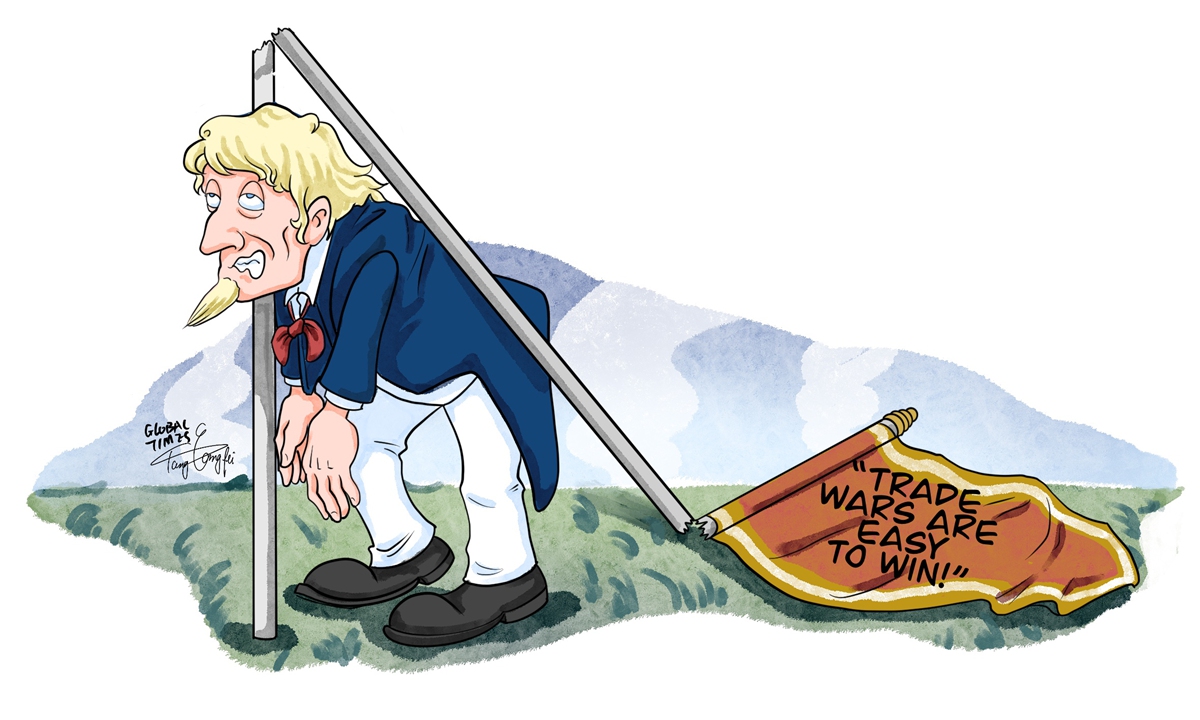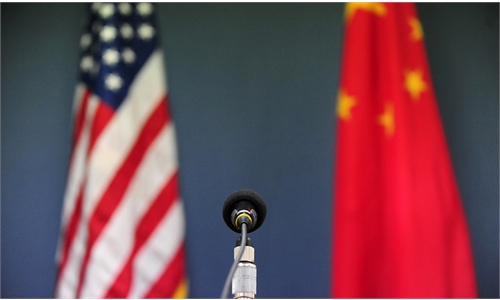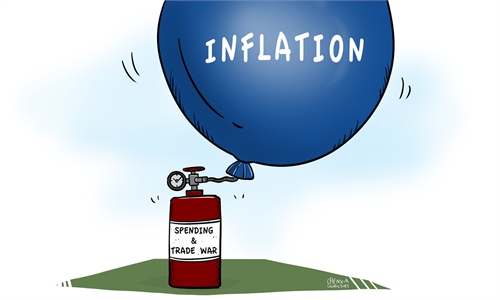COMMENTS / EXPERT ASSESSMENT
Biden’s dilemma in the US’ failed trade war on China

Illustration: Tang Tengfei/Global Times
US President Joe Biden is far from recovering from a disastrous military withdrawal from Afghanistan that was set in motion before he took over the White House, and he is now facing a dilemma over another lost cause started by his predecessor - the US' failed trade war against China. Lifting punitive tariffs on Chinese products has become increasingly urgent for the US, as the toll on the US economy continues to mount, but lowering the tariffs might be portrayed by his domestic political opponents as equivalent to the embarrassing withdrawal from Afghanistan.Such a dilemma has been on display in the lead up to the high-stakes virtual meeting between the leaders of the two countries on Tuesday. Before the meeting, US Treasury Secretary Janet Yellen twice hinted that the US may consider lowering the tariffs, which she argues would help ease the US' skyrocketing inflation. Just one day ahead of the meeting, Yellen reiterated that the US government was looking at reducing tariffs, raising expectations for possible actions from the leaders' summit.
But the meeting was primarily focused on broader strategic issues, according to readouts of the meeting from both sides. Though there was a mention in the Chinese official statement about addressing specific issues through existing economic and trade dialogue channels, there were no arrangements announced specific to the economic and trade field.
It's likely that Chinese and US trade officials will hold more meetings on individual issues, including the tariffs, in the near future, but it remains to be seen whether agreements can be reached to at least start phasing out the tariffs.
The uncertainty lies with the US' side, as it has not articulated a clear coherent approach on addressing lingering trade issues with China. Even after months of what they call a review on US trade policies toward China, US officials are still sending mixed signals.
US economic and trade officials like Yellen and US Trade Representative Katherine Tai have indicated a more positive approach, but they have also been seeking to pressure China over the phase one trade agreement and other areas. According to the White House statement on the virtual meeting, Biden also repeated similar grievances about China's "unfair trade and economic practices."
It's very clear that the Biden administration, facing mounting domestic pressure, is eager to remove the tariffs imposed by his predecessor Donald Trump, but it's not sure about how to proceed and avoid a harsh backlash from US domestic political opponents. US officials are apparently trying to testing waters to see whether it can pressure China into making concessions so that it has a better way out of the toxic tariff war.
However, from the Chinese prospective, the US has no leverage to force China into making concessions. It is the US that picked the battle and is losing in it.
When Trump first launched the trade war by imposing punitive tariffs on Chinese goods in March 2018, the erratic former US president boldly claimed that "trade wars are good, and easy to win." US political and business leaders were complacent. The US mainstream media largely parroted Trump's grievances about China's economic and trade policies and sought to paint a Chinese economy about to be crushed by the trade war.
Indeed, in the early days of the trade war, there was much unease and worry in China. In the face of the US' war posturing, some in the country were even frightened and extremely pessimistic about the country's development. The US' trade war dominated headlines, official meetings and discussions not just in China but also around the world. It also dominated engagement between Chinese and US officials.
However, as the leaders' meeting reflected, after years of the US' crackdown in trade and other areas, the whole China-US dynamic has changed and China is far more powerful and confident in dealing with US aggression and crackdowns. In terms of trade issues, it is the US that needs China's cooperation.
The author is a senior editor at the Global Times. bizopinion@globaltimes.com.cn




